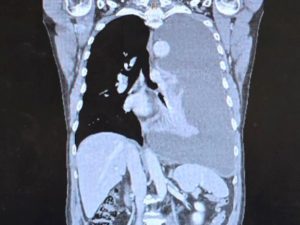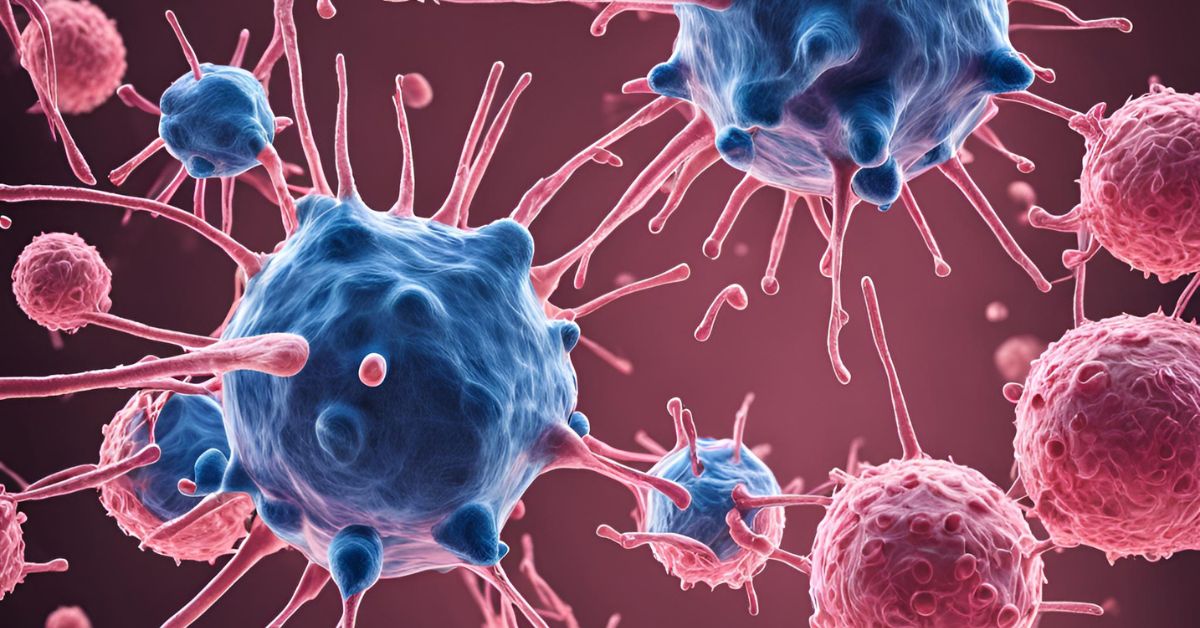Congratulations to Dr Linda Ye, a PhD student at the National Centre for Asbestos Related Diseases (NCARD), along with her supervisors, Associate Professor Alec Redwood, Prof Jenette Creaney and Prof Bruce Robinson, on their recent publication in Translational Lung Cancer Research. Their study, which looked at clinical samples kindly donated by 92 people with lung cancer and mesothelioma from Sir Charles Gairdner Hospital, aimed to find factors that predict how long people with these diseases will live.
Many people with lung cancer and mesothelioma develop pleural effusions – a build-up of fluid in the chest that is often drained to ease breathing. This fluid can contain tumour cells, immune cells, and other components, offering researchers a unique chance to study how these cells interact and monitor changes over time.

In this study, the team focused on CD8 T cells, a type of immune cell crucial in fighting cancer. However, these cells can become “exhausted” near tumours, making them less effective at attacking cancer cells. The team assessed T cell exhaustion by measuring specific proteins they produce, collaborating with colleagues at the Fred Hutchinson Cancer Center in Seattle to analyse T cells in pleural effusions.
The findings were notable. Among patients with lung cancer, those who had a specific type of exhausted T cell survived longer—about 9.9 months compared to 3.4 months in patients with fewer of these cells. They found similar results in mesothelioma patients. Interestingly, the T cells in lung cancer effusions were generally more exhausted than those in mesothelioma cases.
This research could have future implications for predicting patient outcomes and guiding treatment decisions. It also offers valuable insights into how the immune system interacts with these challenging cancers, paving the way for new immunotherapy approaches.
Once again, congratulations to Dr Ye, A/Prof Redwood, and the entire team. We also acknowledge the contributions of NCARD co-authors Dr Ian Dick, Ebony Rouse, Dr Tina Firth, Peter Chiang, Prof Gary Lee, Prof Bruce Robinson, and Prof Jenette Creaney.


